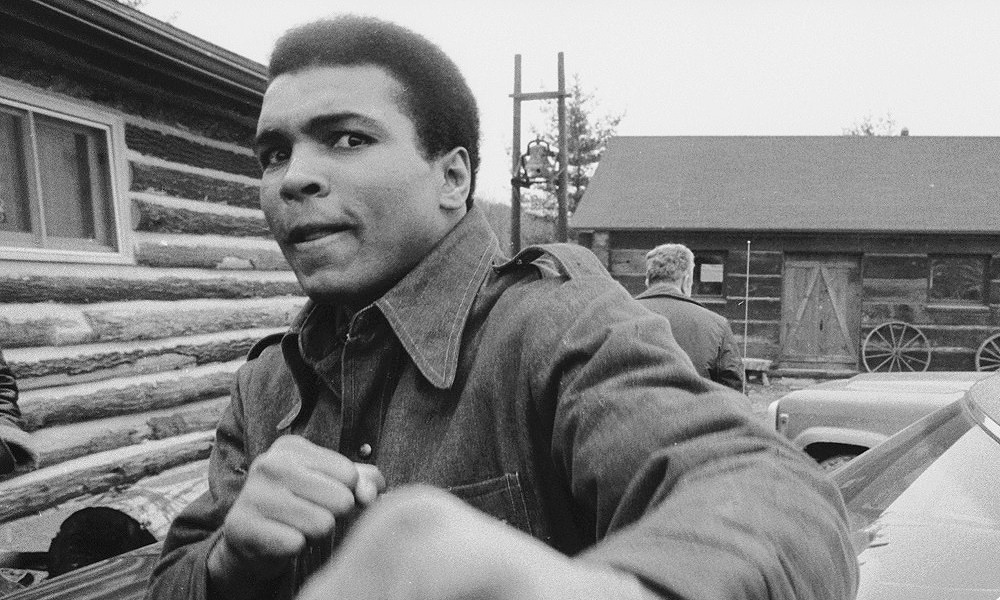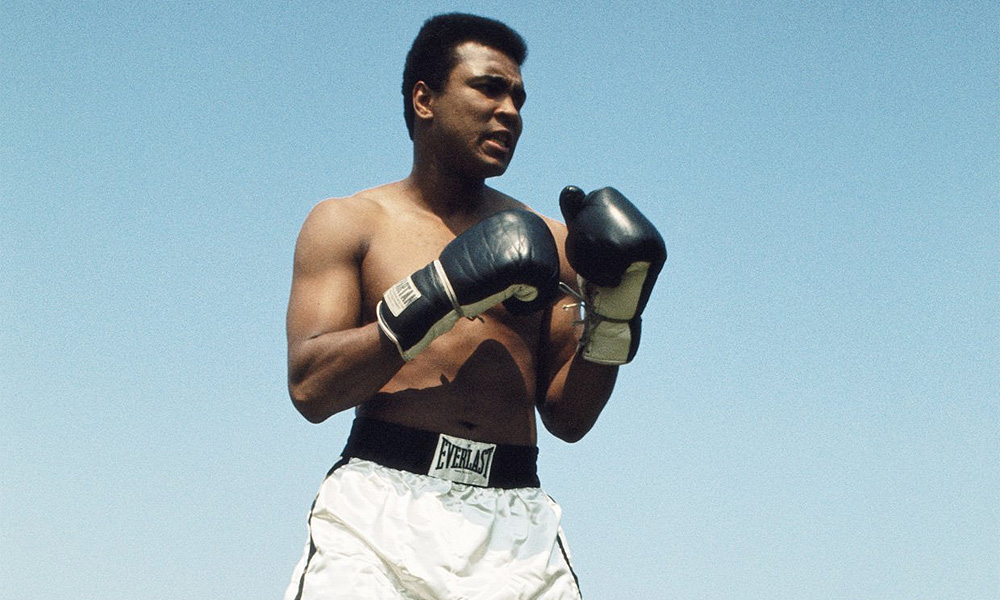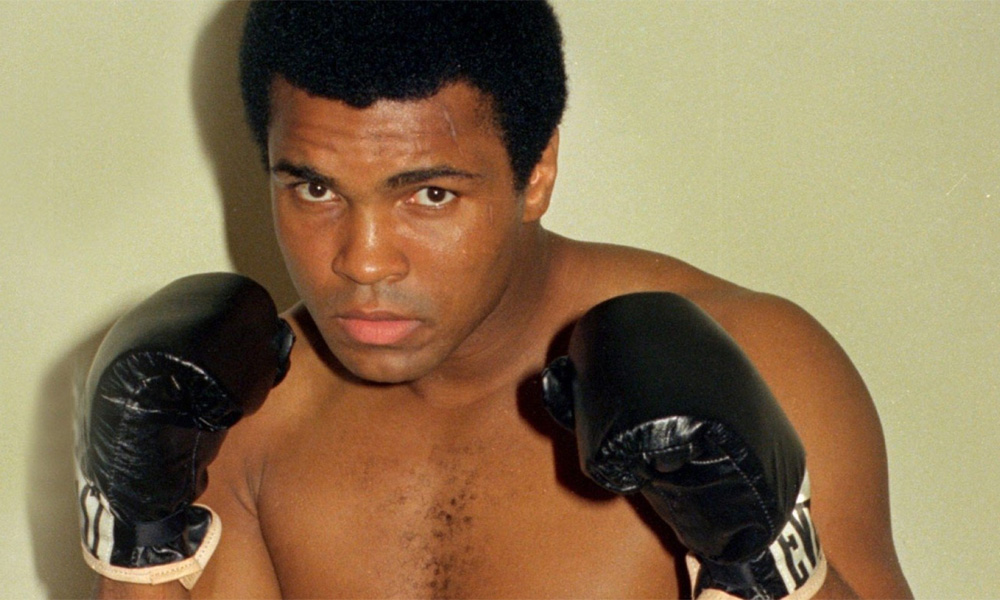Even ‘The Greatest’ Muhammad Ali could not win the fight against Parkinson’s.
The heavyweight boxing champion died yesterday, succumbing to the disease he was first diagnosed with in 1984. He was 74. Ali was hospitalised with pneumonia in late 2014.
Ali amassed a record of 56 wins - 19 by knockout - and five losses in a career spanning more than 20 years. He was also an outspoken social activist who battled racism and the Vietnam war with the same determination he showed in the boxing ring.
Widely considered one of the best boxers of all time, Ali published his autobiography, ‘The Greatest: My Own Story’, in 1975. In it he describes a rise from the gutters of his hometown, Louisville, Kentucky, to fame in the boxing ring.

But Ali also was known for his poetic wit and scathing put downs of opponents.
“Float like a butterfly, sting like a bee” was his motto. Dubbed the Louisville Lip, he verbally abused his opponents with taunts and humiliations. In 1964, the African American boxer told an interviewer that heavyweight title holder Sonny Liston was “too ugly to be the world’s champ!” adding, “The world’s champ should be pretty like me!”
He claimed the title and the next day announced his membership in the Nation of Islam along with a name change from Cassius Clay, which he said was a relic of his ancestors’ enslavement.
At the height of the Vietnam war he refused to be drafted on religious and moral grounds, saying: “I ain’t got no quarrel with them Viet Cong. No Viet Cong ever called me nigger.”
The decision however came with a heavy price. He was convicted as a draft dodger and stripped of his title and boxing licence. The exile also cost him three years while he was still in his 20s, but he used the time to speak out against racism.

“I’m awful happy because what I’m doing now I feel to be much greater than boxing,” he said during a 1969 interview while fighting to have his conviction overturned.
“The greatest sports title mean nothing mister, if you cannot be free... what in the hell is a heavyweight title and a few dollar deals for my people’s freedom?” he added.
Ali began boxing at the age of 12, saying he wanted to punish thieves who stole his bicycle. He captured Olympic gold in 1960 in Rome at the age of 18, winning praise for his “intricate dance steps”. When he defeated Liston four years later he was the youngest boxer to ever beat a reigning champion.
His trademark was his unorthodox fighting style, dancing around the ring in what later became known as the Ali Shuffle and trying to hit only the head of his opponents. His footwork and hand speed often threw opponents off balance.
Though no longer as light-footed as in his youth, it was the legendary bouts of the second stage of his career that catapulted him to boxing stardom. He altered his style by employing what he dubbed a ‘rope-a-dope’ strategy in which he would lie back on the ropes and tempt opponents to punch themselves out.
The 1971 bout against Joe Frazier at New York’s Madison Square Garden - dubbed the ‘Fight of the Century’ - was his first defeat.
Ali later beat Frazier at the same venue and then, also as underdog, reclaimed the world heavyweight title against George Foreman in a fight known as the ‘Rumble in the Jungle’ in Kinshasa, Zaire, now the Democratic Republic of Congo.

But those fights only set the stage for the ‘Thrilla in Manila’, the third fight against Frazier which took place on Oct 1, 1975, in sweltering conditions in the Filipino capital. The two pounded each other for 14 rounds before Frazier gave up.
‘The closest thing to dying that I know’
Ali called the fight “the closest thing to dying that I know” and told Sports Illustrated: “We went to Manila as champions, Joe and me, and we came back as old men.”
Frazier found it hard to forgive Ali for portraying him as the white man’s stooge, and labelling him a “gorilla”. The two were still bitter rivals when Frazier died in 2011.
Ali lost and then regained the world title in 1978 against Leon Spinks and retired in 1981 after losing against up-and-coming Trevor Berbick.
Doctors had already been concerned for Ali’s health before the Berbick fight, saying he was suffering from brain damage from years of blows to his head. He was diagnosed with Parkinson’s three years later.
Ali called the illness a “test of God” but did not let it stop him from undertaking various humanitarian efforts, including a 2002 trip to Afghanistan.
The highlight of his retirement came in 1996 when he lit the Olympic flame at the summer games in Atlanta. His controversial past as a draft dodger had been cleansed and his mouthy provocations forgiven.
Among his many awards was a lifetime achievement award by rights group Amnesty International, and the title United Nations Messenger of Peace for his work in developing countries. The father of nine received the Medal of Freedom from president George W Bush in 2005.
Former US president Jimmy Carter called him “Mr International Friendship” - a recognition as precious to Ali as his various sporting achievement awards he received from the likes of the BBC and the International Olympic Committee.
- dpa

